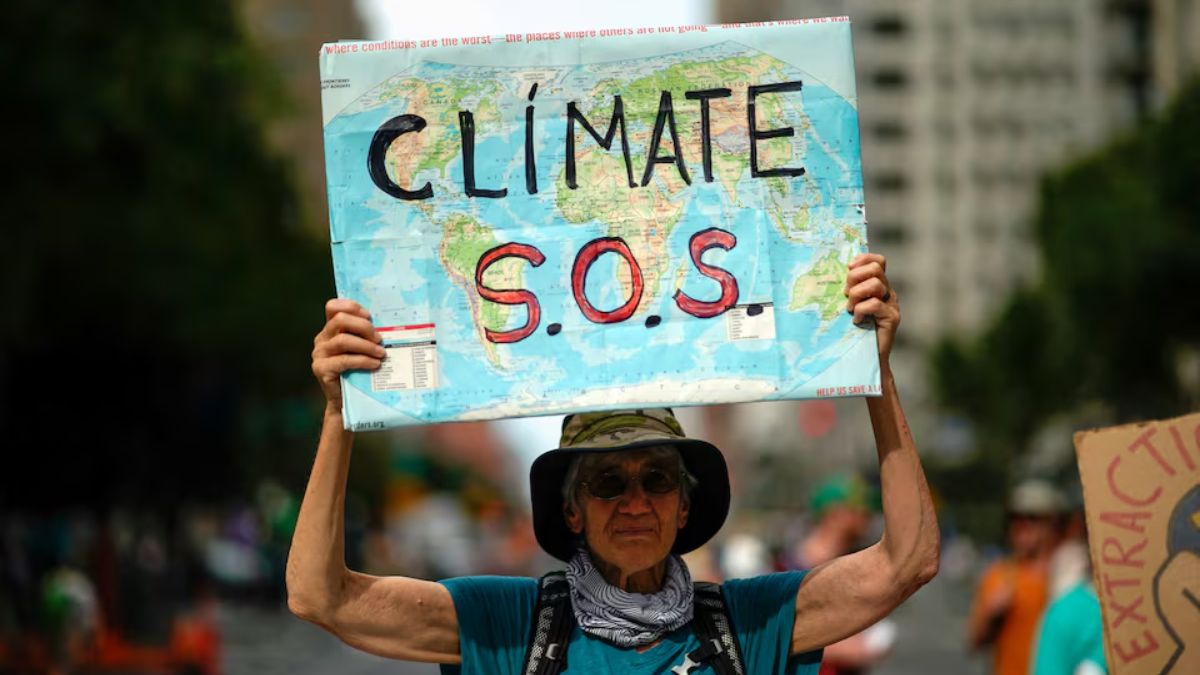The economic cost of climate change will be $38 trillion per year by 2050 and incomes across the world will reduce by 19%, according to a new study.
The study flagged that the developing world would suffer much more than the developed world with the poorest regions facing double climate change-induced income loss than the developed North America.
The study was conducted by researchers of Germany’s Potsdam Institute for Climate Impact Research. It was published in the journal Nature on Wednesday. It is notable for highlighting that while the developed countries of Europe and North America may not suffer the same as the developing countries in Asia and Africa, they will also not escape the economic consequences of climate change.
While the world economy on an average will reduce by 19% by 2050 because of climate change, regional variations would mean that the developed North America and Europe will have a reduction of income of an average 11% whereas it would be 22% for South Asia and Africa, as per the study.
54% of world population will lose income if status quo continues
The climate change-induced damage to farming, infrastructure, productivity, and health will lead to at least 54% of the world population losing income to the tune of at least 15%, according to the study.
“This increases to 68% of the population when variability and extremes are included. The share of the global population facing catastrophic impacts of 20% or higher with a 5% chance rises from 4% to 17%,” said the study.
The study further said that economic cost to limit the global warming to within 2*C of the pre-industrial level by 2050 —$6 trillion— would be less than a sixth of the cost of the estimated damage if the 2*C threshold is breached.
If business as usual continues, the study projected global average income losses of over 60% by 2100. If emissions, however, fall to net zero by 2050, the study said that the damages could stabilise at around 20%.
Inequality of climate change costs ‘devastating’: Researcher
Study co-author Leonie Wenz termed the findings of the study “devastating” and “really shocking” in terms of the inequality of the climate change consequences.
“It’s devastating. I am used to my work not having a nice societal outcome, but I was surprised by how big the damages were. The inequality dimension was really shocking,” said Wenz to The Guardian.
The inequality is such that Pakistan (26%) is projected to suffer more than twice the Germany and the United States (11%).
Maximilian Kotz, another co-author, told the paper, “Strong income reductions are projected for the majority of regions, including North America and Europe, with south Asia and Africa being most strongly affected. These are caused by the impact of climate change on various aspects that are relevant for economic growth such as agricultural yields, labour productivity or infrastructure.”
The study’s findings draw a stark contrast between the developed and the developing worlds. While Germany (11%), France (13%), USA (11%), and UK (7%) will suffer in the range of 7-13%, countries in Asia, Africa, and South America will be in the range of 25-31%, with Botswana facing 25% loss, Mali 25%, Iraq 30%, Qatar 31%, Pakistan 26%, and Brazil 21%, according to the report.


)




)
)
)
)
)
)
)
)